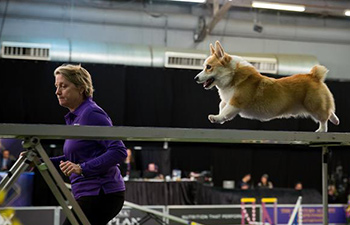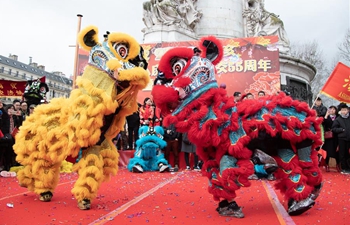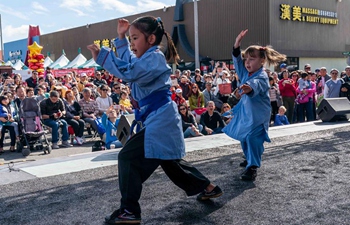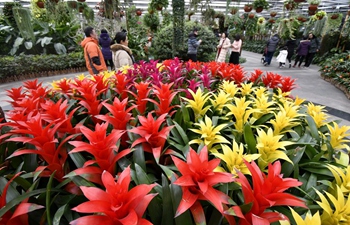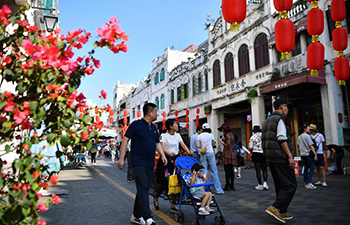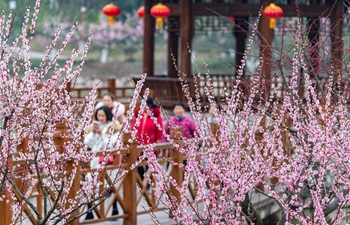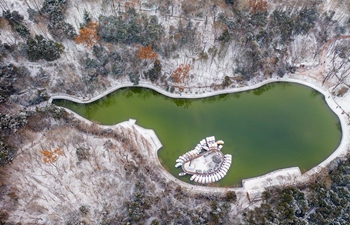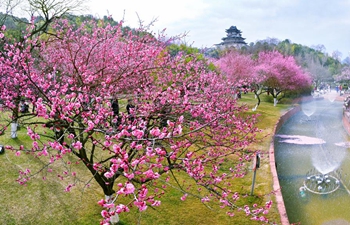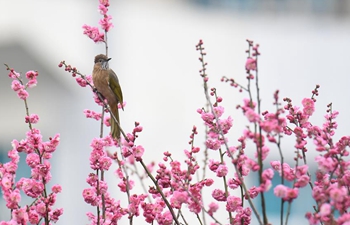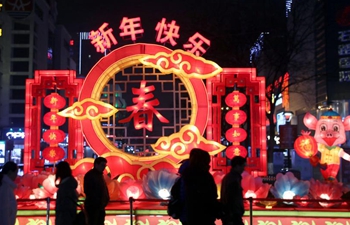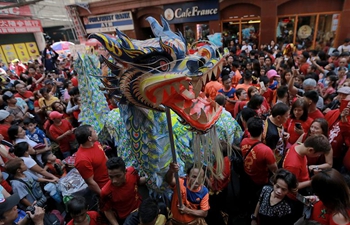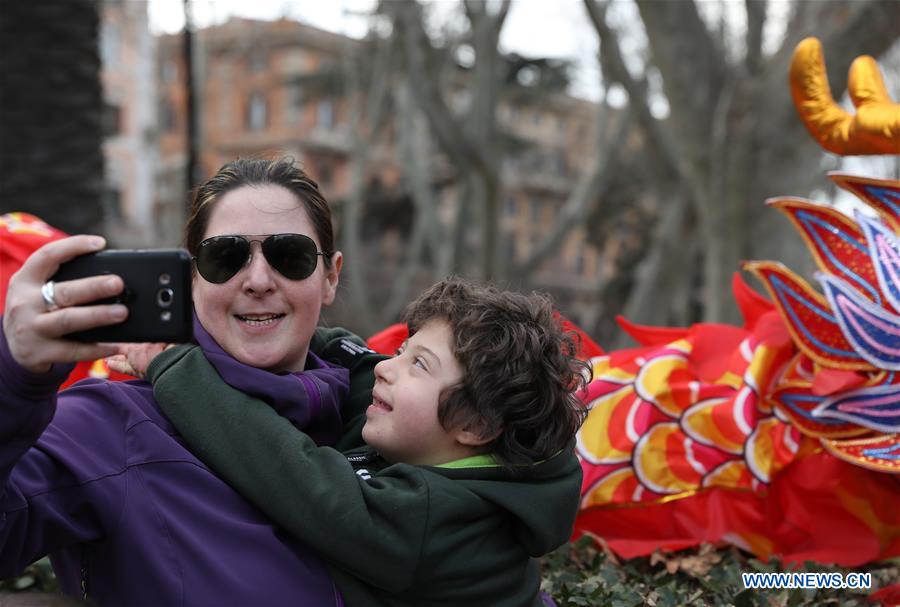
A woman takes a selfie with her son during the 2019 Spring Festival celebrating event in Rome, Italy, on Feb. 10, 2019. The celebration was held in Rome, Italy for the Lunar New Year, included a parade of lion and dragon dance and a photo exhibition. Thousands of people including local residents, foreign visitors and Chinese communities were attracted. (Xinhua/Cheng Tingting)
ROME, Feb. 11 (Xinhua) -- The Italian capital played host on Sunday afternoon to the 2019 Happy Spring Festival celebrations, attended by throngs of cheerful Italians and Chinese people.
Organized jointly by 22 local Chinese groups, the event included the traditional dragon and lion dance parade, a New Year fair, as well as art and cultural performances in Rome's Piazza Vittorio.
Chinese Ambassador to Italy Li Ruiyu extended New Year greetings to all overseas Chinese and Italian people from all walks of life.
He said that 2018 witnessed the further in-depth development of a China-Italy comprehensive strategic partnership. Mutual political trust between the two countries has been consolidated, high-level exchanges were frequent, and Sino-Italian pragmatic cooperation has continued to deepen. The public in both countries truly felt the blessings brought about by this friendship, he said.
"The Spring Festival is the most important traditional festival for the Chinese people. It is a cultural symbol that unites every Chinese," Li said, adding that the New Year fair brings festive mood for the overseas Chinese and at the same time helps the local Italian public understand China better and more directly.
Francesca De Vito, regional councilor of Lazio, said she was honored to attend such a joyful Chinese festival and happy to see the Italian and Chinese cultures complement each other through continuous communication and exchanges.
"Thank you for organizing such activities, bringing your festival, your traditions and your happiness to Rome," she said.
The celebrations were kicked off by an Italian orchestra playing the traditional Chinese song "Jasmine," and included performances like Peking opera, Kuaiban (oral storytelling) shows and waist drum dances. A Shaolin Kung Fu show that involved local Italian students was also a hit among the audience.
The local Italians actively participated throughout the celebrations. The stalls set up by various Chinese associations involved them in traditional Chinese festive activities like writing couplets, cutting paper, and making Kung Fu tea.
